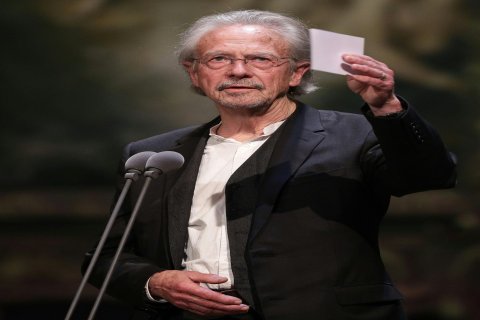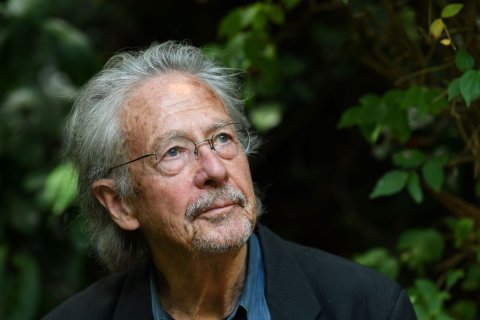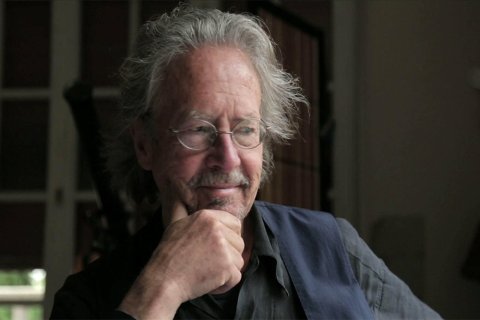Peter Handke

Peter Handke: The Controversial Nobel Laureate
Born in 1942 in Griffen, Austria, Peter Handke is a renowned playwright, novelist, and screenwriter known for his minimalist style and exploration of themes such as language, alienation, and memory. His works have garnered both critical acclaim and controversy, resulting in a complex and multifaceted legacy.
Early Life and Career:
Handke's early life was marked by personal struggles and a strained relationship with his father. He left home at a young age and embarked on a series of menial jobs before finding success as a writer. His first play, "Offending the Audience" (1966), propelled him into the literary spotlight and established his reputation as a provocative and challenging playwright.
Major Works and Themes:
Handke's works often revolve around characters who are alienated and disconnected from society. He delves into their inner thoughts and struggles, exploring the complexities of human existence. His plays, such as "Kaspar" (1967) and "The Ride Across Lake Constance" (1971), examine the relationship between language and reality, while his novels, including "A Sorrow Beyond Dreams" (1972) and "Crossing the Sierra de Gredos" (1996), explore themes of displacement and loss.
Controversy and Criticism:
Throughout his career, Handke has courted controversy with his provocative statements and actions. He has been accused of supporting Serbian nationalists during the Yugoslav Wars and has been criticized for his writings on the conflict. Despite these controversies, Handke's literary achievements have been widely recognized, and he remains a significant figure in contemporary literature.
The Nobel Prize in Literature:
In 2019, Peter Handke was awarded the Nobel Prize in Literature "for an influential work that with linguistic ingenuity has explored the periphery and the specificity of human experience." The announcement was met with mixed reactions, given Handke's controversial views. Yet, the Swedish Academy defended its decision, citing the importance of Handke's literary contributions.
Legacy:
Peter Handke's works have had a profound impact on contemporary literature, influencing generations of writers and readers alike. His exploration of language, alienation, and memory has resonated with audiences around the world, solidifying his position as a significant figure in the literary landscape. Despite the controversies surrounding him, Handke's legacy as a master of language and a provocative thinker remains undeniable.







